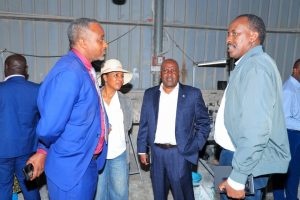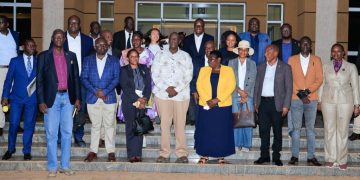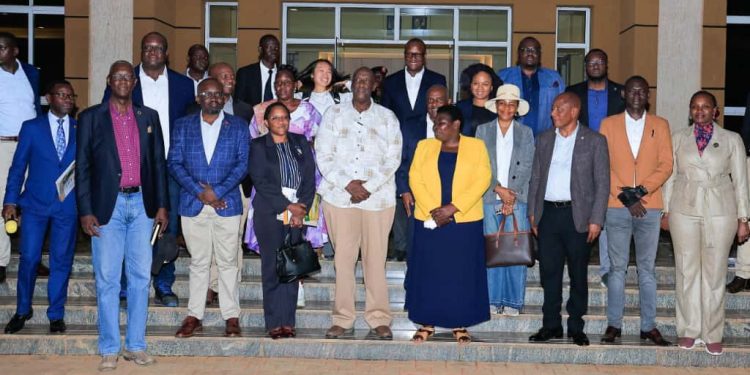Kapeeka — Senior Presidential Adviser for Defence and veteran UPDF General, Salim Saleh, has called on Uganda’s private sector to take a more proactive role in national development, urging business leaders to move beyond dependence on government and engage directly in solving key economic and social challenges.
Speaking at a CEOs’ forum held at Namunkekera Industrial Park in Nakaseke District on October 17, Gen Saleh stressed that political rallies and partisan divisions have distracted leaders from real issues affecting productivity and industrial growth.
“You should spend more time in productive work, not politicking,” he told participants, who included industrialists, government CEOs and local government officials.
The forum, intended to showcase progress at Namunkekera and highlight opportunities for private-public collaboration, turned into a meeting of minds about the utilisation of existing industrial infrastructure.
Saleh argued that Uganda’s economic transformation can no longer rely on government initiatives alone, pointing to inefficiencies, bureaucratic delays, and policy disconnects that have slowed progress in critical areas like land reform and investment facilitation.
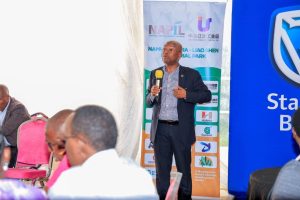
“The private sector must get involved in national development. Government alone cannot deliver,” he said.
Saleh revealed that when he served in the executive, they developed three key programs: The Rural Financial Services Program, the Agriculture Credit Facility, and the CHAPA Loan. He said he believed the CHAPA loan is the most liberating tool Uganda can ever have.
Saleh cited delays in the implementation of the “Chapa loan” programme and unresolved land governance issues as major hindrances to industrial expansion. Without stronger private sector leadership, Saleh warned, such gaps would continue to affect Uganda’s ability to harness local resources and talent for meaningful growth.
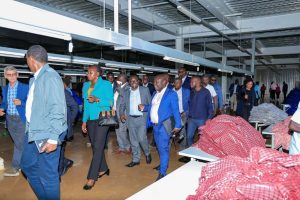
Despite facing criticism from both opposition figures and even some within the ruling party, Saleh emphasised that his commitment remains focused on practical solutions and grassroots empowerment through industrialisation.
The Namunkekera Industrial Park, which he has championed for years, remains a flagship project aiming to provide rural communities with employment, skills, and economic opportunities.
As Uganda continues to struggle with high youth unemployment and land disputes, Saleh’s remarks serve as a reminder that transformative development will require cooperation across political and economic lines, and a shift from rhetoric to results.
